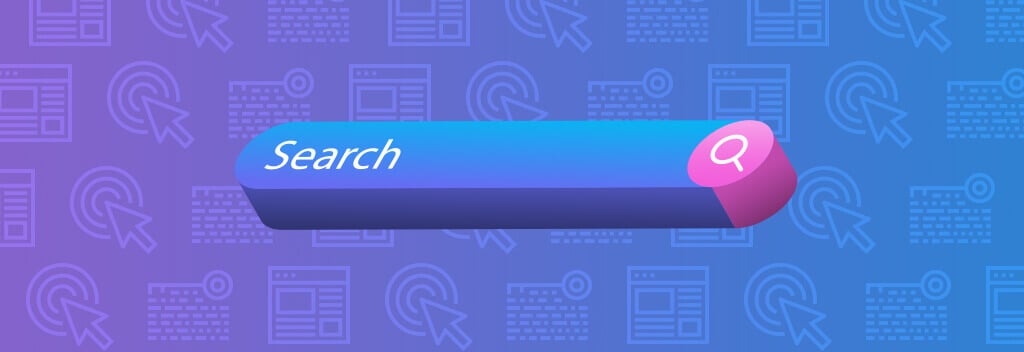Organic traffic includes the visitors who arrive on your B2B website after performing a search online using a search engine. The most well-known search engine is Google, followed by Bing, DuckDuckGo, Yandex, etc.
(Check out 17 great search engines you can use instead of Google if you are creeped out by Google’s privacy practices.)
Ideally, these organic traffic visits come from searches using terms (also known as keyword phrases) that are relevant to the products or services you sell. If you sell accounting software, you want organic visitors who are using terms like “accounting software,” “software for accounting,” or “software for accountants.” Anyone using these terms to search online is likely a prospective client.
You may understand what organic search traffic is, but may still wonder WHY is it so critical to the success of my business? The most general answer is because organic visitors are typically strong, qualified leads who are ready to talk to you. However, let’s take a deeper look at WHY you want more organic search traffic to your B2B website.
The Prospect Is Looking for Your Products/Services
This may seem like an obvious statement, but we’ve seen companies inadvertently throw away leads from organic traffic because they didn’t understand how far along the organic visitor was in the sales process.
As an example, a person who is looking to buy packaging equipment for their pharmaceutical company already knows they need the equipment. Therefore, if this person goes to Google or Bing and types in “pharmaceutical packaging equipment,” you can be absolutely certain they already considering buying the equipment. Your sales team doesn’t need to persuade them to consider the equipment. Your sales team just needs to chat with the prospect, tell them the equipment you have to offer and see if it’s the right fit.
Read more: The art of choosing the right SEO keywords.
Educate + Be the First Resource
Not all organic leads are already qualified like the lead discussed above. For many users, search engines are a way to educate themselves about products or services for their industry.
By focusing on optimizing for search terms that are relevant to your prospects or clients, you can be the first resource the user sees and engages with. It’s your opportunity to educate the prospect about the benefits of the products and services. The information you provide to organic visitors will then become the bar that they hold other competitors. You get the opportunity to control the messaging and aid them in the process.
Your Competitors Are Doing It
Search engine optimization (SEO) and attracting organic search is no longer a “nice to have.” It is now a “must have.” Even before the COVID-19 pandemic, the majority of buyers (including B2B buyers) were first turning to online search to find the products or services they need. If you aren’t already increasing the amount of organic search traffic you get, you are behind your competition. Because your competition is certainly working on SEO and attracting new leads from organic traffic.
Read more: SEO insights for B2B marketers.
Inbound Leads Are Already Qualified
Not only is an organic visitor already interested in the types of products and services you offer, but they are also already partially qualified. How do you know if a lead you keep cold-calling is even looking to buy industrial-grade copper wire? You don’t. They may not even be in the same department as the person who purchases copper wire.
This isn’t the case with an inbound lead that comes from an organic search. You already know the lead is partially qualified – they have something to do with the decision-making process for buying industrial-grade copper wire. Now, whether they are looking to buy 5 feet or 5,000 feet is something you need to further qualify them for, but you already know you sell the product they need.
Read more: SEO for B2B – Beyond the basics.
Increasing Distrust for Ads
The major drawback of organic traffic is that you can’t buy it. It takes time to achieve good organic rankings and it takes commitment to maintain good rankings. However, the major advantage of organic rankings is that it is more trusted than paid ads on Google.
Now, we aren’t trashing paid ads on Google or Bing. If you work with a reputable pay-per-click agency who understands your business, paid ads can perform very well. BUT, users are becoming savvier and are able to recognize paid ads online. In many cases, they will scroll past them to the organic search results. For this reason, it’s critical that if you launch a PPC ad campaign, that you also launch an organic SEO strategy as well.



